It was the quiz question which still brings a smile to the faces of Gothenburg Greats like Peter Weir 40 years later – which Scottish senior club has the longest name?
Now, before Caley Thistle fans start getting hot under the collar, it is worth bearing in mind this question was asked on May 10, 1983.
The answer, back then anyway, was Hamilton Academical FC. Weir, however, recalls the furore which unfolded, with manager Alex Ferguson leading the protests, thanks to captain Willie Miller’s answer.
Weir said: “We had a quiz in the hotel the night before the game, and everyone was having a laugh until Willie gave an answer of Hamilton Academicals instead of Academical in response to the question about who had the longest name in Scottish football?
“Fergie nearly caused a riot by claiming Willie had given the wrong answer and it is one of those moments the boys still laugh about today.
“It was all engineered to get us going. Fergie was clever and he did things like that a lot. I saw it as all in good fun, but there was certainly a lot of arguing over that one that’s for sure.
“You know what he was like – it was win at all costs.
“Fergie loved to fill in time with activities. He hated the idea of the players lying in their beds in their rooms.”
Bayern was where Dons players began to believe they could go all the way
It was Liverpool manager Jurgen Klopp who arrived at Anfield wanting to turn his squad from doubters to believers.
For Sir Alex’s players at Pittodrie, it was beating Bayern Munich in the quarter-final which had them daring to dream of European Cup Winners’ Cup glory 40 years ago.
The Germans were one of the best teams in Europe and a team of star players who Weir believes would beat the Dons more often than not.
But those two games in the quarter-final were the crucial times when the odds worked in Aberdeen’s favour as the Reds, having drawn 0-0 in Munich, stunned the Bundesliga side 3-2 at Pittodrie thanks to two late goals within a minute.
Weir said: “When we started out in the competition I don’t think ever of thought we’d get to the final never mind win the cup.
“But beating Bayern at home in the quarter-final gave us some boost. Playing a team like Bayern and beating them over two legs on aggregate was huge as they were a fantastic side.
“I think if we played them 10 times we would be lucky to beat them twice as they were an exceptional side.
“But we got them at the right time and the two goals in quick time upset them. They never got back into the game, thank goodness.
“It was that match where the belief really started to swell through the dressing room.”
Players were well prepared by coaching staff
Ferguson’s trusted assistant Archie Knox was given the task of scouting opponents Real Madrid ahead of the final and his trip to watch the Spaniards has become an infamous tale in the build-up to the final.
Weir said: “We never spoke about Real Madrid until three or four days before the game. I know people find that hard to believe but it’s true.
“Archie went out to see them, but whether he actually got to see them or not we don’t know. There was an issue with tickets and they made it really hard for him to watch them play and we all had a laugh about it.
“Archie had great paperwork on all the teams we faced. We knew all about the teams and players we were up against.
“We went through it on the Monday before the game. We had a dossier given to us so we had a good idea of what we were facing in the final.”
Pre-match talk was simple
As for the game itself, the message from the manager was a simple one – play the game, not the occasion.
Ferguson had his players well prepared. In-form, full of belief, having already beaten the best team in the competition en route to the final had put Aberdeen in the perfect frame of mind.
Weir said: “Real Madrid are who they are; a top club then as they are now. But we were told we’re not playing the club, we’re playing the team on the night.
“The weather was horrendous, the park was flooded and we genuinely doubted whether the game would go ahead.
“The conditions suited us as we were a very fit side thanks to the training from Fergie and Archie.
“I’m not saying Real Madrid weren’t, but when it went to extra-time our fitness came through and we definitely deserved to win.”
Peter Weir says half-time tactical switch in Gothenburg paid off
Winning the game was not a feat achieved easily, however, and Ferguson, having deployed Weir in a central role in the first half, changed his approach during the interval to get more out of both his wingers, Weir and team-mate Gordon Strachan.
Weir said: “I played a more central role in the first half and when we came in at half-time the manager had a wee go at Gordon and me.
“Before the game started, it wasn’t a case of going on the attack, it was about getting in the game and staying in it.
“But the first half was rotten if you remember. Would you believe I didn’t watch it back until around the time of the 30th anniversary?
“The first half was pretty average if I’m being honest.
“Fergie wanted me to go out wide again and we started attacking them in the second half straight away. It was a different game from the first half.
“You can’t attack for 90 minutes, it’s impossible. It’s what you do when you’ve got the ball that matters. It’s about using the time on the ball to create chances and score the goals to win games.”
Celebrations were a family affair
Aberdeen timed their run to perfection with Weir going on a driving run before releasing Mark McGhee in space down the left. McGhee picked out John Hewitt in the middle – and the rest was history.
The celebrations, understandably, lasted long into the night.
Weir said: “I remember the celebrations very well. My mother and sister were over and I managed to spot them in the crowd.
“That’s the first thing I remember from after the game. We were walking round the pitch after the game and happened to hear my mother shouting from the crowd.
“I went over to celebrate with her and then it was time to celebrate with my team-mates.
“I was fortunate to play with these guys in a period where we had celebrations every year.
“Certainly, to win the Cup Winners’ Cup against Real Madrid was wonderful and it went on well into the small hours of the following morning that’s for sure.”
Recipe for success has not changed 40 years later
Aberdeen’s class of 1983 remains the benchmark for every team which has followed.
But as far as Peter Weir is concerned, there is no secret to the team’s success. A group of exceptional players, combined with an outstanding manager, equalled unparalleled success.
Weir said: “We were under pressure, but we never thought about it. With the success we had on the pitch, we were playing Wednesday-Saturday every week.
“After beating Bayern in the quarter-final we played so many games before the semi-final and final that we barely had time to think about what was possible.
“It sounds like a cliché, but it really was game by game. There was huge importance on every game we played back then and there was no way we could take our eye off the ball in any of them.
“With the manager and Archie in charge there was little chance of that happening. You trained, played, tried your best and went again.
The good dressing rooms have a mix of characters. You need them whether it is on or off the park.”
“We were fortunate to have great players and a great atmosphere in the dressing room.
“With Fergie and Archie barking orders all the time, we all knew there was another player waiting to take our place in the team if we didn’t produce.
“The thought of losing your place in that team with so many big games and chances to win trophies was enough to keep you on your toes I can assure you.
“We weren’t paid big money, which I think is part of the problem nowadays – players today are overpaid and we certainly weren’t.
“There was a pride at beating our rivals in our era and we earned our money with the bonuses from winning games.
“The good dressing rooms have a mix of characters. You need them whether it is on or off the park.
“We had guys who never shut up and other guys who said very little until they were under pressure – but we were always encouraged to have our say.
“Even today you need them – the battlers, winners, characters.
“The skilful players, the boys who win the ball who give it to the guys who can change the game… it takes all those qualities in your dressing room.”
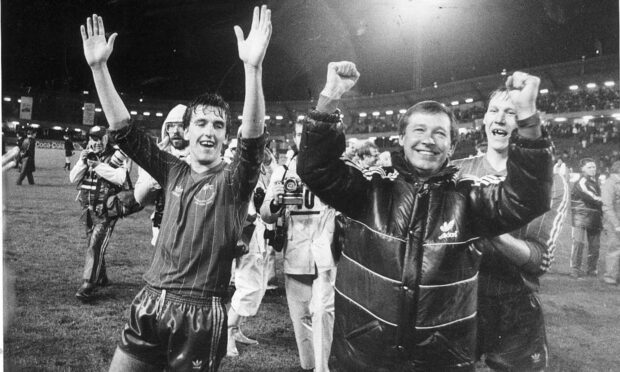

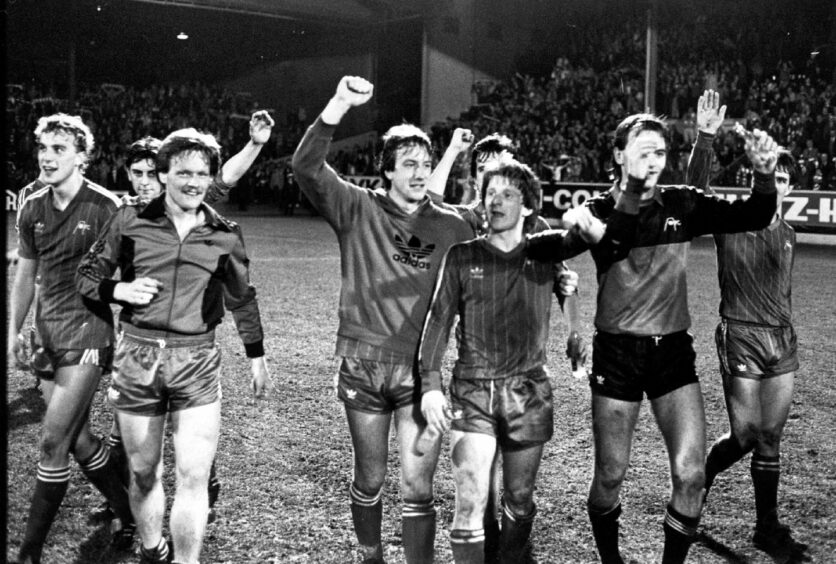
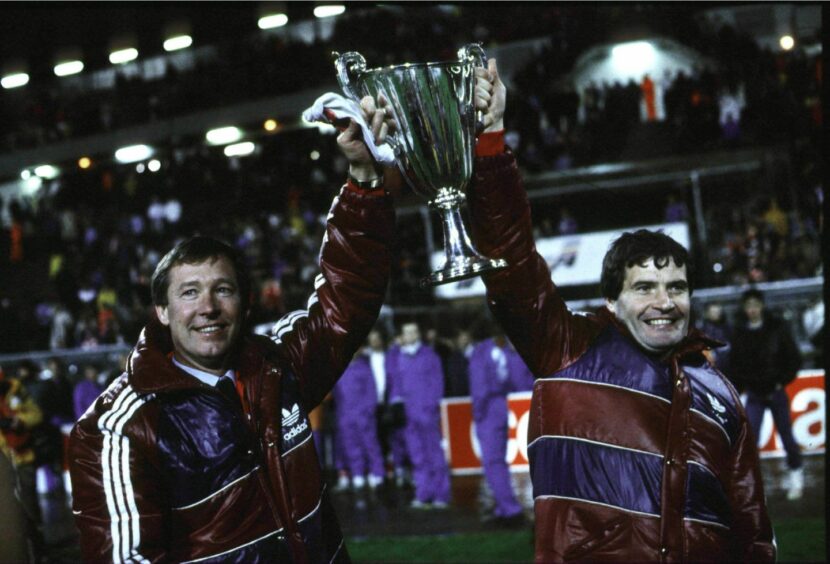
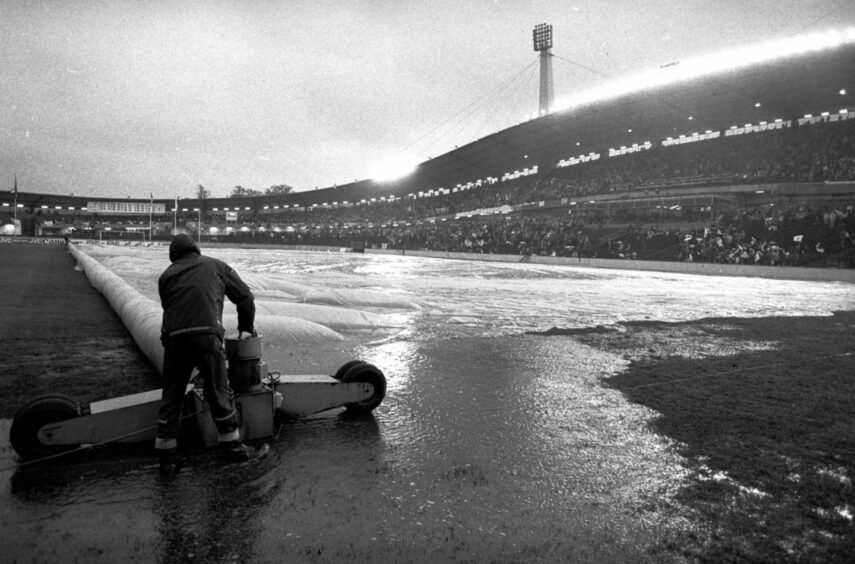
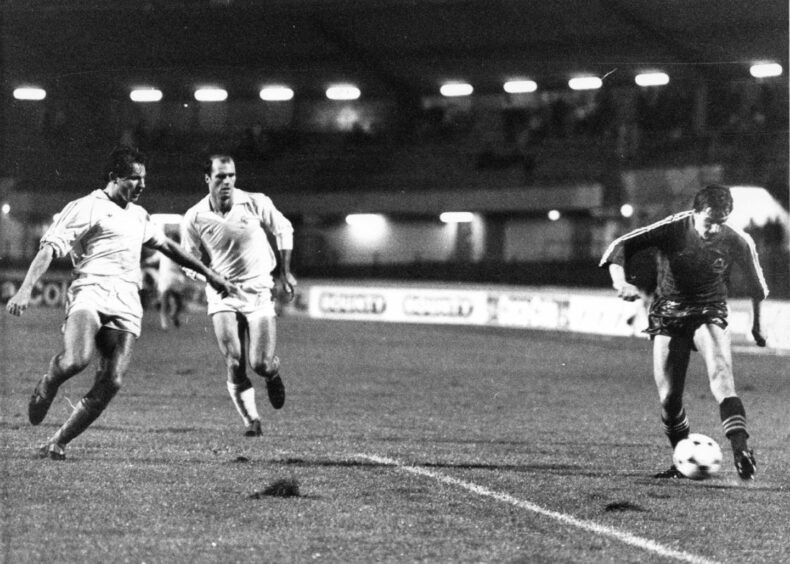
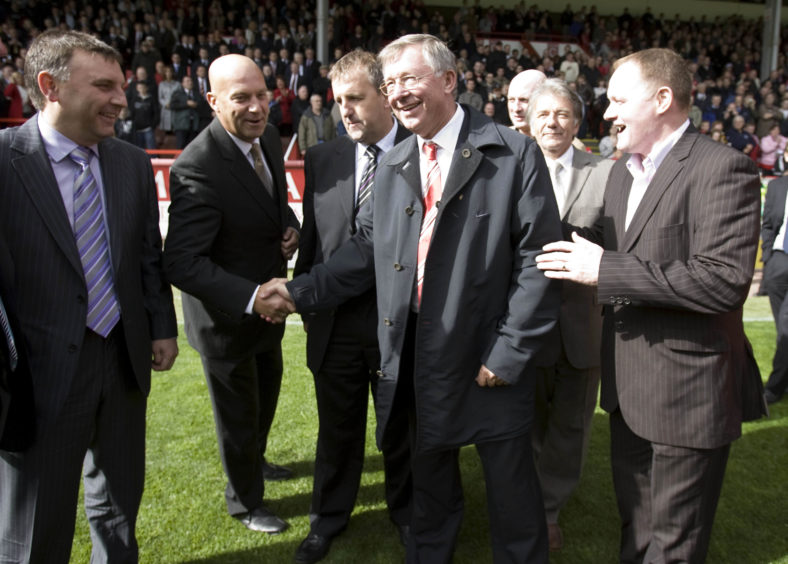
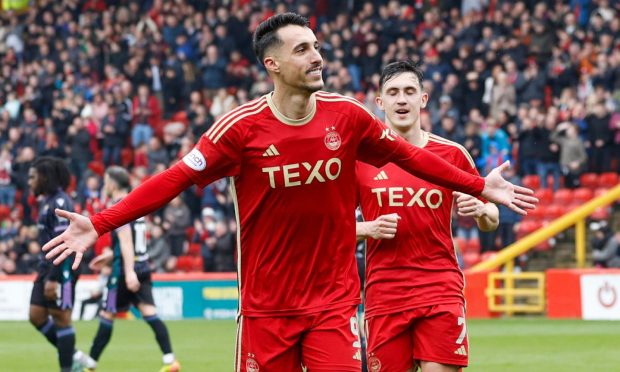
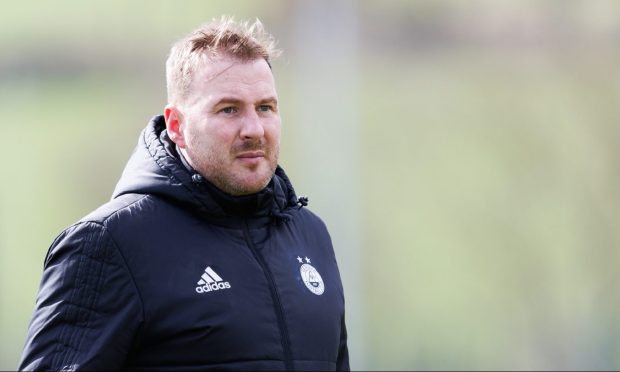
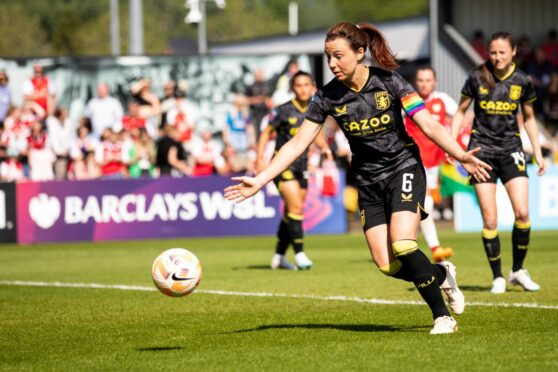
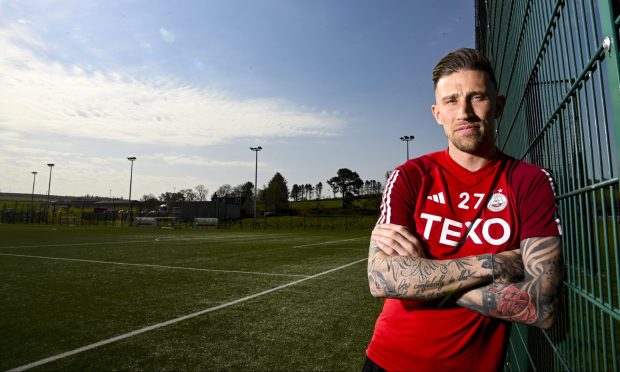
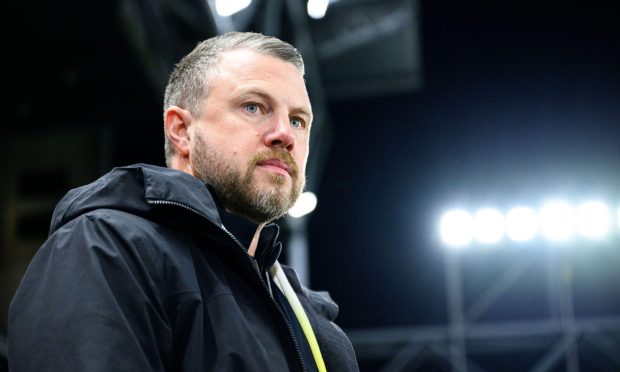
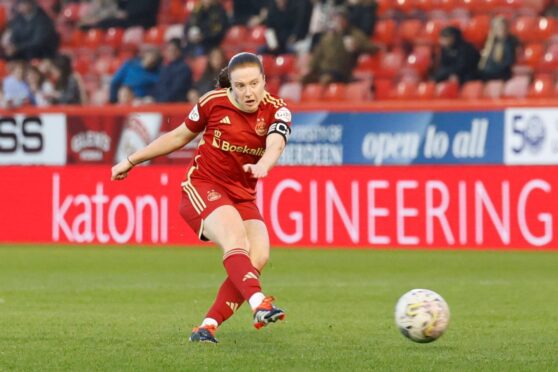
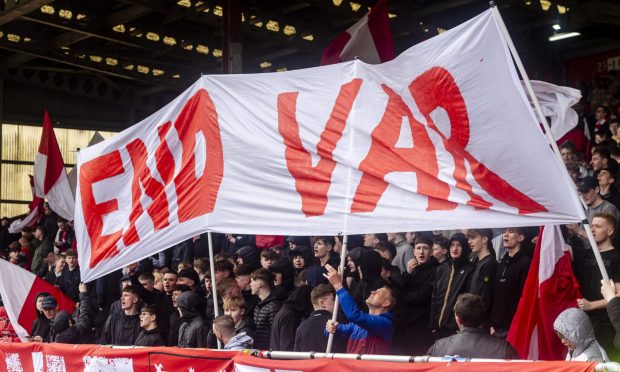
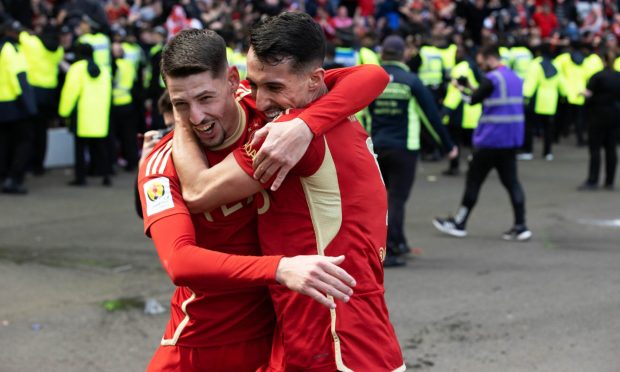
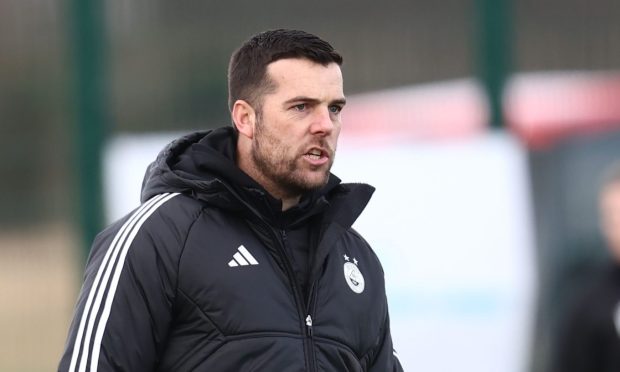
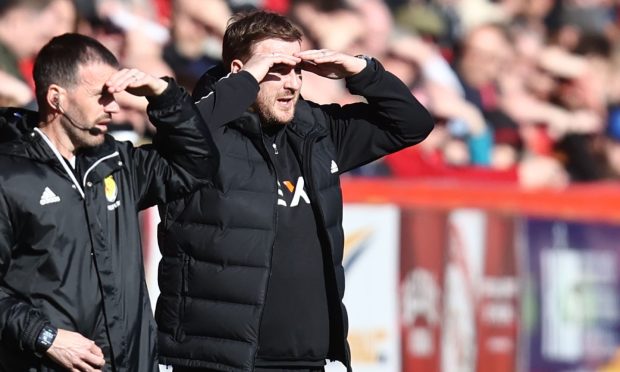
Conversation